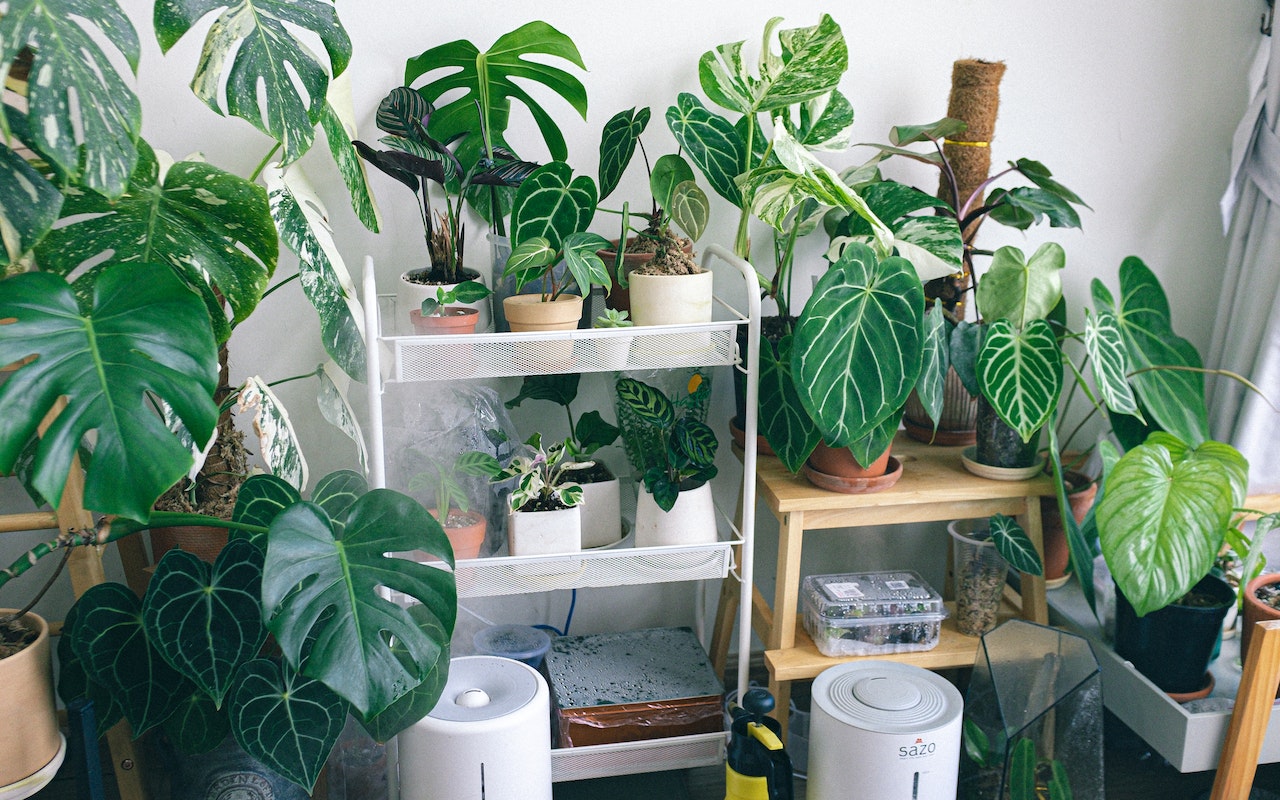There are many people who believe that time spent in nature is time well spent—and with good reason. Whether indoors or out, evidence suggests that being in the presence of living organisms like plants has the power to do everything from inspire creativity in our daily lives to help detoxify the air we breathe.
While not everyone agrees on the exact ways we benefit from plants, the majority of scientific research supports the general conclusion that, in one way or another, plants are good for us. Whether you already have some in your home or you’re just beginning your search, here’s a quick look at some of the reasons why making space for plants in your life can be beneficial.
Benefits to Your Physical Health
You may have heard that indoor plants help improve air quality, a claim that is often traced back to a study conducted by NASA in 1989. While some recent studies challenge whether indoor plants actually purify the air in your home, many people maintain the original findings still stand—though to see a marked difference in air quality, it might require we make room for more than just one or two small ones.
Beyond potential effects on the air we breathe, research from the last few years also suggests a multitude of other benefits to our physical health, including a reduction in fatigue, improved healing time for hospital patients, and lowered blood pressure. In fact, in an article published by the National Library of Medicine, researchers who compared the physiological effects of performing a plant-related task versus a computer-related task found evidence to suggest plants have noticeably more positive physiological effects on the autonomic nervous system.
Benefits to Your Mental and Emotional Health
Another aspect of daily life that can be improved by the presence of plants is our mental and emotional health. According to one study, indoor gardening effectively reduces stress through the suppression of autonomic nervous system activity.
Research also suggests that putting energy into cultivating plant life (i.e., caring for something outside of ourselves), especially when experiencing symptoms of depression, can have a positive impact on our overall mood and encourage better self-care practices.
Plants may also influence worker productivity and have been said to strengthen our feelings of connection to nature. Certain plants, like lavender, may help calm those experiencing anxiety while also contributing to a better night’s sleep.
Finding the Right Indoor Plants for Your Space
So where is a good place to start when searching for the right indoor plants for your space? Whether in search of a plant small enough to fit on one corner of your desk or enough plants to fill an entire room, there are dozens of options to choose from.
Some of the most common house plants we tend to hear about include:
- Peace Lilies
- Snake Plant
- English Ivy
- Aloe Vera
- African Violet
- Boston Fern
- Cast Iron Plant
Although the list goes on, it may be worthwhile to research even well-known plants before bringing any new ones into your home. The toxicity levels for pets and humans might surprise you. Aloe vera, for example, while known to be beneficial in treating sunburns, can be toxic when ingested by cats or dogs. A quick review of toxicity levels will give you a chance to find a space that’s out of reach of children and pets if you do opt to bring home a plant that is potentially harmful when touched or ingested.
As you research your options, it might also be helpful to consider:
- Do you have the right amount of sunlight for the plant to flourish?
- Does your space match the ideal temperature range and humidity?
- Is the plant high or low maintenance?
- What size plant will fit best in your space?
- How big is the plant likely to get and can your space accommodate its growth?
Once you’ve chosen a plant, apps like Planta or Flourish can provide you with detailed care instructions, and help you find suitable locations based on light conditions in your different rooms. There’s also no shortage of free educational resources available online to help guide you in taking good care of the plants in your life.
The more the world around us feels out of our control, the more important it can be to create a sanctuary in the space we do have control over—and this is often the ideal place for plants.
Her Nexx Chapter invites you to join our free Community where women from around the world are connecting with each other’s stories, exploring different experiences, and transforming ideas.
The Future of Connection for Women








0 Comments